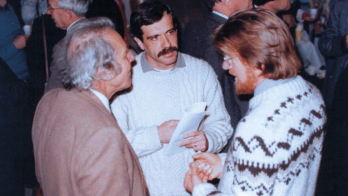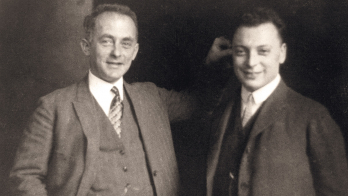By David Wilkinson
Oxford University Press
Hardback: £25
Also available as an e-book

With doctorates in both astrophysics and theology, David Wilkinson is well qualified to discuss the subject matter of this book. He provides a captivating narrative on the scientific basis for the search for extraterrestrial intelligence and the religious implications of finding it. However, the academic nature of the writing might hinder the casual reader, with nearly every paragraph citing at least one reference.
Scientific and religious speculation on the possibility of life elsewhere in the universe is age-old. Wilkinson charts its history from the era of Plato and Democritus, where the existence of worlds besides our own was up for debate, to the latest data from telescopes and observatories, which paint vivid pictures of the many new worlds discovered around alien suns.
Readers familiar with astrophysics and evolutionary biology might find themselves skipping sections of the book that go into the specific conditions that need to be met for Earth-like life to evolve and attain intelligence. Wilkinson, however, is able to tie these varied threads together, presenting both the pessimism and optimism towards the presence of extraterrestrial life exhibited by scientists from different fields.
Despite referring to religion in the title, Wilkinson states early on that his work mainly discusses the relationship of Christianity and SETI. In this regard, the book provided me with much insight into Christian doctrine and its many – often contradictory – views on the universe. For example, despite the shaking of the geocentric perspective with the so-called Copernican Revolution, some Christian scholars from the era maintained that the special relationship of humans with God dictated that only Earth could harbour God-fearing life forms. Earth, therefore, retained its central position in the universe in a symbolic if not a literal sense. Other views held that nothing could be beyond the ability of an omnipotent, omnipresent God, who to showcase his glory might well have created other worlds with their own unique creatures.
After covering everything from science fiction to Christian creation beliefs, Wilkinson concludes with his personal views on the value of involving theology in searches for alien life. I leave you to draw your own conclusions about this! Overall, the book is a fascinating read and is recommended for those pondering the place of humanity in our vast universe.
Further reading
Achintya Rao, CERN.







